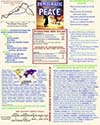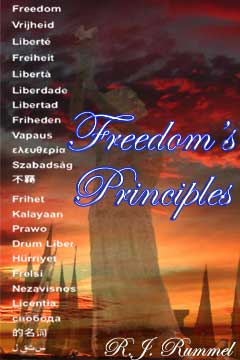[First published August 28, 2005] I came across an article,“Why Truman Dropped the Bomb” by Richard B. Frank (an historian of World War II, author of Downfall: The End of the Imperial Japanese Empire) appearing in The Weekly Standard. Frank provides new intelligence (the complete “Magic” intercepts released in 1995 of Japanese communication at the highest levels) and information, and a new slant on the dropping of the Hiroshima and Nagasaki A-bombs that I had not considered.
I should note that Frank believes that dropping the bombs were not only a good decision, but necessitated by what we have now come to understand was the situation at the end of July in 1945 (the Hiroshima bomb was dropped on August 6).
What do we now know we didn’t know or know well a decade or more ago?
1. The Japanese knew we were planning to invade Kyushu, were building up their forces to a make an invasion very difficult, if not impossible, and we knew that from our intercepts of their high and low level communications.
2. Aware of this, and believing that such an invasion would be too costly to be sustainable by the American people, the commander in chief of the U.S. Fleet Admiral King, and Pacific Fleet Admiral Nimitz opposed the invasion and when the final decision had to be made, the Navy would have fought for a blockade and bombardment of the Japanese Islands instead. Frank writes that the invasion “had become unthinkable.” So much for justifying the A-bombing by the cost in lives of such an invasion.
3. While the Japanese inner Cabinet did authorize peace feelers in Moscow, their bottom line strictly adhered to until after Nagasaki, was not only the continuation of the prerogatives of the Emperor, but also of the old fascist order. So, if we had moderated our unconditional surrender demand to allow for the continuation of the emperor, it would not have made any difference. So much for peace feelers.
4. While the dropping of the A-bombs was by all standards of warfare, including the Hague and Geneva Conventions, a war crime and democide in my terms, on balance I have to consider that daily throughout Asia and the Pacific, the Japanese military were murdering vast numbers of civilians and POWs. The American historian Robert Newman put the death toll at about 400,000 Asians a month. By my calculations, this is not too far off, since I tally a total Japanese democide during the war of 5.9 million (Calculated here. See the resulting table in the uper right). In honesty, in considering the morality of Hiroshima and Nagasaki, I had completely forgotten about the ongoing Japanese democide.
5. Whether we invaded or not, we can’t ignore Stalin. He entered the war against Japan on August 9. Had we not used the A-bombs and had the Japanese inner cabinet and emperor continued to fight to the end, he would have taken all of Korea, and even perhaps undertaken an invasion of Japan’s northern Island of Hokkaido of western Honshu (Stalin had no compunction about squandering millions of lives). I leave to your imagination what a Korea ruled totally by Stalin and his having a foothold in Japan would have meant for the post-war world, human lives, and Japanese democracy.
So, have I changed my view? By definition and how I have labeled similar actions by the Soviets, Nazis, and Japanese military, Hiroshima and Nagasaki were democide. I can’t change that unless I totally rewrite and recalculate all I’ve done on democide. But morally, is it right to murder hundreds of thousands to save the lives of even more? Or, to save nations (South Korea and Japan) from Stalin’s democidal horrors?
I have to tell you, recognizing these arguments is painful for me. For the last two-decades, I have consistently opposed any democide as a crime against humanity and immoral. Now, the above arguments inexorably force me to accept that massive democide can be necessary to prevent even greater democide (Japanese democide was not speculative, but known, and ongoing; nor was what Stalin did in occupied countries speculative), and thus a moral tradeoff. It is the same for the assassination (an international crime) I recommend of Kim Jung Il, or my approval of torture (an international crime also) when it would save many lives.
Sometimes I envy those on the far left or right. They live in a world of red and blue absolutes, and will not be bothered by conditionals and qualifications; and do not understand that nature, life, and ethics are a balance.
Link of Note
“ENDING THE PACIFIC WAR: HISTORY AND FANTASY” (3/25/01) By Richard B. Frank
Frank says:
The decisions made by President Truman and his subordinates to add nuclear weapons to the campaign of blockade and bombardment cost the lives of between 100,000 and 200,000 Japanese at Hiroshima and Nagasaki, on top of the many tens of thousands of others who died in the incendiary raids or due to the ultimate effects of the blockade. Those Japanese noncombatants, however, held no stronger right not to be slaughtered than the vast numbers of Chinese and other Asian noncombatants dying daily, the Japanese noncombatants on the Asian continent dead or forever missing in Soviet captivity, or the Japanese noncombatants (not to mention Allied prisoners-of-war and civilian internees) who would have perished of starvation and disease in the final agony of the blockade. Thus, alternatives to the atomic bombs carried no guarantee as to when they would end the war and a far higher price in human death and suffering.
Finally, the deaths actually incurred in ending the war were not gratuitous. American goals were not simply victory but peace. Had American leaders in 1945 been assured that Japan and America would pass two generations in tranquility and still look forward with no prospect of future conflict, they would have believed their hard choices had been vindicated- -and so should we.



 Posted by rudyrummel
Posted by rudyrummel 






